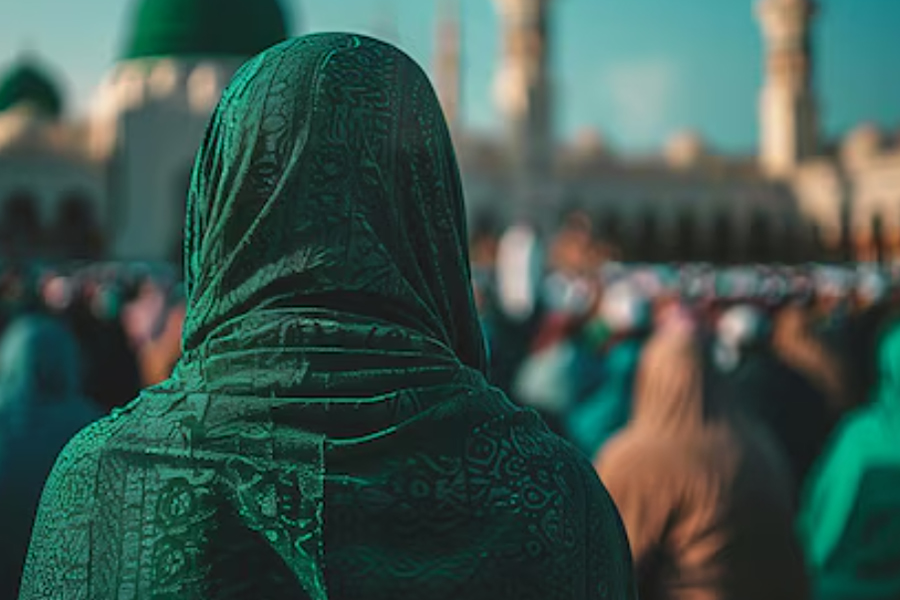Question
Can a woman lead the Eid prayer, even if the congregation is only women?
Bottom Line
Women are encouraged to attend the Eid prayer, but they are not permitted to lead it. From the time of the Prophet ﷺ through the consensus of scholars, the imamate of Eid Salah has remained the responsibility of men.
Quick Answer
The Prophet ﷺ always led Eid prayers or appointed men to lead in his place. No authentic narration records women leading Eid prayers. Women are encouraged to attend and share in the blessings of Eid, but the imamate is reserved for men by consensus.
Key Takeaways
- The Prophet ﷺ and his Companions established that men lead Eid prayers, with no record of women doing so.
- Women are encouraged to attend Eid gatherings for communal du’a and remembrance.
- Jurists across all schools agreed that Eid imamate is designated for men as part of public worship leadership.
Detailed Answer
The Prophet ﷺ consistently led the Eid prayers or appointed men to do so in his absence. No authentic narration shows a woman leading an Eid prayer, which firmly establishes male imamate as the practice of the Sunnah.
Abu Mas‘ud al-Ansari reported that the Prophet ﷺ said:
“The people should follow the imam, and he should be the last one to bow and the last one to rise.”Sahih Muslim 414
At the same time, women were encouraged to attend Eid prayers. Umm ‘Atiyyah (may Allah be pleased with her) reported:
“The Messenger of Allah ﷺ commanded us to bring out on Eid al-Fitr and Eid al-Adha the young women, the women observing hijab, and the menstruating women. The menstruating women were to avoid the prayer place but witness the goodness and the supplications of the Muslims.”Sahih al-Bukhari 971;
Sahih Muslim 890
Scholars agreed that the imamate of the Eid prayer is tied to broader responsibilities of public worship and community leadership, which the Sunnah assigned to men. This is not a matter of capability but of following the prophetic model and preserving the established structure of worship.
What This Means for You
Women are encouraged to attend Eid prayers and share in their blessings, but leading them is reserved for men, in line with the Sunnah and scholarly consensus.
And Allah knows best
References
Primary Sources
Hadith
- Sahih Muslim 414: The people should follow the imam in prayer.
- Sahih Muslim 890: Women encouraged to attend Eid.
- Sahih al-Bukhari 971: Women brought out for Eid prayers.
- Sunan Abu Dawood 1134: Rulings on Eid prayer.
- Sunan al-Tirmidhi 530: Eid prayer guidance.
Secondary Sources
- Ibn Qudāmah, al-Mughnī (2/224): Imamate rulings for Eid prayer.
- Al-Nawawi, al-Majmū‘ (4/284): Consensus on Eid prayer leadership.
- Ibn Hajar, Fath al-Bari (2/550): Commentary on the hadith of women attending Eid.
Was this helpful?
Leave Your Comments
© Copyright 2025, All Rights Reserved

